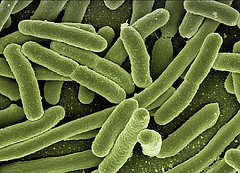An excellent intestinal barrier is significant in “digesting” stress, which impacts all conditions and diseases that stress and gastrointestinal problems can cause.
I have to slow down; I’m under a lot of stress! “How often have we heard this sentence from people close to us or our family doctor when he tells us to slow down a bit? Stress causes fatigue, decreased concentration, nervousness, demotivation, and depression and can lead to “burnout” syndrome and physical and mental chronic diseases. Stress attacks the stomach and triggers inflammatory processes, which leaves consequences on our bodies.
New Normal on Stress and Gastrointestinal Problems
Stress is the cause of many physical and/or mental diseases, and today it is a common occurrence in modern man. We are running through the day; we are not postponing obligations; everything must be “now and immediately,” it is becoming increasingly difficult to reconcile family and business life, and the demands are increasing. Unhealthy food, various medications, and additional fear caused by uncertainty and social isolation have additionally burdened our body, which has to deal with even greater stress. Our “new normal” has become a significant burden for our bodies.
Why Do Some of Us Tolerate Stress Better?
The answer lies in – healthy intestinal flora!
There are ten times more microbial cells in our body than human cells, and interestingly, our individual microbiome shares only 10% similarity to other human beings. The microbiome of every human being is unique, like a fingerprint.
Our intestines contain more than 80% of immune cells. Since the breakdown and absorption of nutrients, vitamins, and minerals occur here, immune cells are essential for preventing the possible entry of pathogens and toxins. The microbiome has a significant impact on metabolism and even on immune system functions. Today’s lifestyle and exposure to stress increase mental disorders, and studies have proven that the intestinal flora of mentally ill people differs significantly from healthy people.
Can We Influence Our Stress Response?
The microbiome also affects our brains. The influence of intestinal bacteria on the psyche and cognitive processes is the subject of intensive research. It has been established that the intestines and the brain communicate with each other in several ways. The digestive system regulates the feeling of hunger and appetite via the intestinal-brain axis, but it also affects the state of mind and cognitive processes. Research studies have already shown that intestinal bacteria control emotional behavior, cognitive decision-making processes, pain perception, and sensitivity to stress. An excellent intestinal barrier is significant in “digesting” stress, which leads to the impact on all conditions and diseases that stress can cause, from stomach problems to anxiety and depression, reactions to negative external stimuli, and cortisol levels of “stress hormone.”